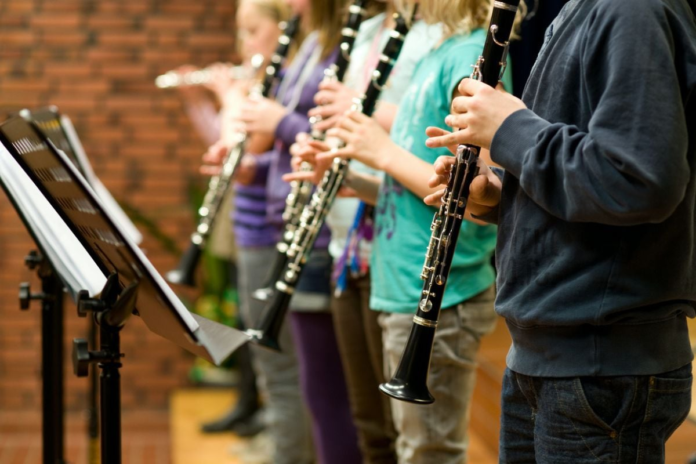Photo: iStock
Music charity ABRSM finds that while the majority of young people cite music as important to their mental wellbeing, there are two ages where significant drops in learning music through formal means occur.
Research from the Associated Board of the Royal Schools of Music (ABRSM) has identified two ages at which there is a significant drop in the number of young people formally learning music.
The music charity’s latest Making Music report (LINK), which surveys how music is played, learned and taught in the UK, refers to the ages of 12 and 15 years old as ‘cliff edges’ for music learning, the latter of which coincides with when young people begin to plan for and start GCSEs.
The report cites competing interests at school and home as a possible reason for the trend, but notes that it does not necessarily mean a reduction in participation due to the increasing frequency of young people engaging with digital music.
ABRSM found 43% of the young people surveyed use digital technology to learn music, representing an increase on previous research.
In contrast, the number of young people playing an instrument was found to be falling, with just under seven in ten children saying they currently play or previously played an instrument, down from around three-quarters in 2020.
ABRSM’s report says the cliff edges for formal music learning raise questions around whether children are being denied music opportunities as they move through education, or if the drop is a natural phenomenon.
It suggests extra-curricular activities, capacity to provide and signpost progression pathways and connection to resources in its local community as ways schools can look to support young people as they reach these cliff edge ages.
“Whether this support leads to study for formal qualifications or not, musical encouragement of this sort can be invaluable for individual growth and development,” the report adds.
ABRSM’s report also highlighted that the majority of young people agree that making, learning and engaging with music is good for their mental health and wellbeing.
A total of 84% of the young people surveyed, aged 5 to 17, said that music plays an important role in their mental health. Almost three-quarters (74%) added that music is important to their social lives, while just over half (53%) said it contributes to their future career ambitions.
The report says this finding supports numerous academic studies. It adds that survey respondents also pointed to a range of other wellbeing benefits that music brings them, including skills improvement, confidence, and self-esteem.
Chris Cobb, ABRSM chief executive, commented that the mental health benefits of music are “hugely important at a time when mental illness is so rife”.
“The tragedy is that the same research shows how young people disengage from music learning, both when they shift to secondary school and when they start GCSEs,” Cobb added.
“The challenge facing us all is how we can support schools and the communities around them to help young people continue experiencing the benefits of music.”
The music charity is calling on music education stakeholders to closely examine how children who want to continue learning can be supported. It also recommends investing in music teachers and their skills, confidence, and creative applications, as well as prioritising creativity in schools.
“To ensure more people access the benefits [of music], it is clear that we should invest in creativity and the delivery of music in our schools,” explained ABRSM engagement director Lincoln Abbotts.
“Investment should especially focus on the workforce and their connection to the resources and skills that can inspire a lifelong love and interest in something that is wholly and incontrovertibly good for us.”
News | Patrick Jowett
2 min read
News | Patrick Jowett
3 min read
News | Chris Sharratt and Mary Stone
4 min read
News | Patrick Jowett
4 min read
You must be logged in to post a comment.
/ Part Time
/ Full Time
/ Freelance
/ Full Time
/ Full Time
/ Full Time
Ⓒ 2025 Arts Professional Media Ltd
Research identifies ‘cliff edges’ for music learning – Arts Professional
RELATED ARTICLES
